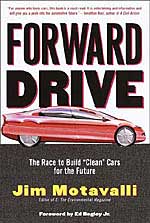books
-
On Bjorn Lomborg and population
Some years ago, well before many outside Denmark knew Bjorn Lomborg's name, a group of his fellow faculty members at the University of Aarhus took the unusual step of developing a website specifically to warn the scientific community and others about flaws in his work. Appalled by Lomborg's scientific pretensions and unfounded conclusions, these faculty members, including a former head of the Danish Academy of Sciences, actively disassociated themselves from him.
-
On Bjorn Lomborg and species diversity
Bjorn Lomborg opens his chapter on biodiversity by citing my 1979 estimate of 40,000 species lost per year. He gets a lot of mileage out of that estimate throughout the chapter, although he does not cite any of my subsequent writings except for a single mention of a 1983 paper and a 1999 paper, neither of which deals much with extinction rates. Why doesn't he refer to the 80-plus papers I have published on biodiversity and mass extinction during the 20-year interim?
-
On Bjorn Lomborg and climate change
Bjorn Lomborg's chapter on global climate change is a clever polemic; it seems like a sober and well-researched presentation of balanced information, whereas in fact it makes use of selective inattention to inconvenient literature and overemphasis of work that supports his lopsided views. The Intergovernmental Panel on Climate Change reports and other honest assessments don't have the luxury of using such tactics, given the hundreds of external reviewers and dozens of review editors.
-
On Bjorn Lomborg and extinction
My greatest regret about the Lomborg scam is the extraordinary amount of scientific talent that has to be expended to combat it in the media. We will always have contrarians like Lomborg whose sallies are characterized by willful ignorance, selective quotations, disregard for communication with genuine experts, and destructive campaigning to attract the attention of […]
-
A skeptical look at The Skeptical Environmentalist
Before the terrible events of Sept. 11 nudged our national mood towards nouveau-earnestness, skepticism was the disposition of the day. Bred in the swamps of transparent consumer manipulation, untrustworthy political leaders, and information overload, skepticism stamped a permanent question mark onto the brows of Generation X and seemed poised to become the watchword of our nation.
-
A review of You Can't Eat GNP
"The more money we spend, according to the GNP ... the better off we are," explains Eric Davidson in You Can't Eat GNP. The Gross National Product, or GNP in common parlance, is the cumulative value of products and services created and traded by a nation, and the traditional measure of economic well-being. Yet in the past decade or so, the flaws in this measuring system have become increasingly clear to a growing number of economists, social scientists, and other observers. As Davidson learned during his time as a Peace Corps volunteer in Zaire, not only does the GNP fail to account for the state of a country's health-care, education, and welfare systems -- it also fails to recognize the overall and long-term costs, environmental and otherwise, of producing goods and services.
-
A look back at Al Gore's 1992 opus on the environment
How many environmentalists have actually read Earth in the Balance? Very few, I'm willing to wager.
The truth is that until recently, I myself felt qualified to pontificate on Al Gore's environmental beliefs and, yes, occasionally question whether he'd lived up to them, even though I hadn't read more than a few excerpts from the book. Well, that age of innocence is over.
-
How far can clean cars take us?
I loved cars long before I knew there was any reason to worry about their effect on the environment or be concerned about the smoke that poured from their tailpipes. In the 1960s, ignorance like mine was widespread in the United States, maintained by a powerful automotive lobby and a complacent federal government. Highway congestion, though already bad, was somewhat masked by an expanding national highway grid, and most people celebrated the migration to the suburbs that the new roads aided and abetted. Cars were equated with freedom, and ads of the period showed happy vacationing families riding in roomy sedans, with the uncrowded interstate stretching out in front of them.
-
We Be Culture Jammin'
Maybe you’ve seen Adbusters magazine or the Adbusters website, with their takeoffs on common ads. “Joe Chemo,” the popular Joe Camel, sits sad, sick, and bald in a hospital bed. A sports utility vehicle surges through the wilderness under the slogan: NATURE — IT’LL GROW BACK. A slumped over vodka bottle proclaims ABSOLUTE IMPOTENCE. It […]





